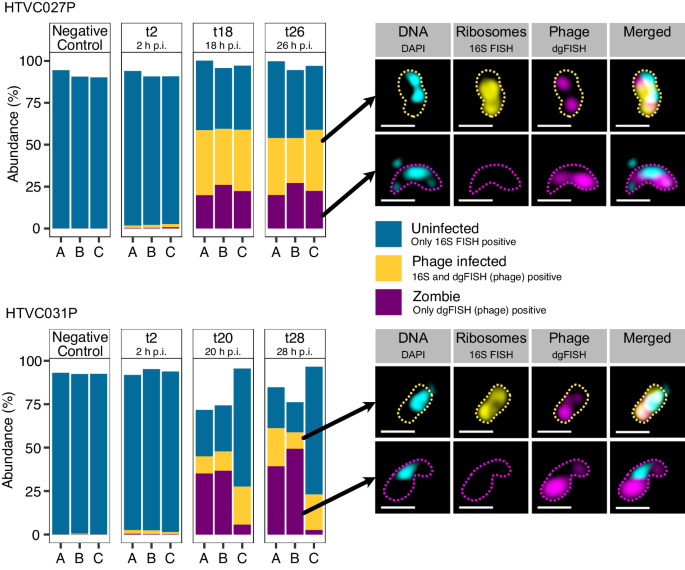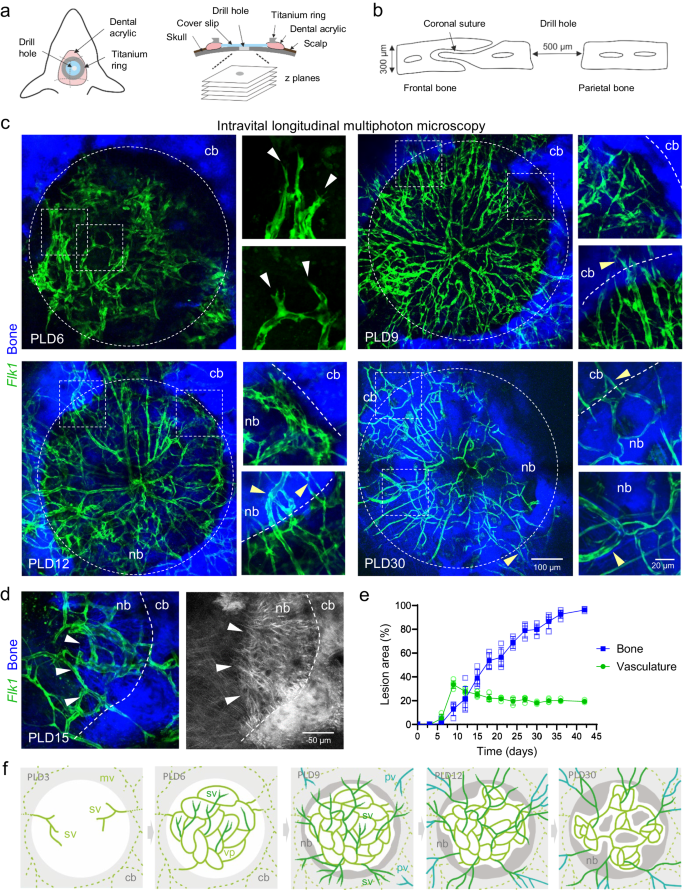2024-05-17 マックス・プランク研究所
<関連情報>
- https://www.mpg.de/21940426/0517-mbio-zombie-cells-in-the-sea-viruses-keep-the-most-common-marine-bacteria-in-check-154772-x
- https://www.nature.com/articles/s41467-024-48172-w
世界的に発生するペラジファージ感染症がリボソーム欠乏細胞を作り出す Globally occurring pelagiphage infections create ribosome-deprived cells
Jan D. Brüwer,Chandni Sidhu,Yanlin Zhao,Andreas Eich,Leonard Rößler,Luis H. Orellana & Bernhard M. Fuchs
Nateur Communications Published:02 May 2024
DOI:https://doi.org/10.1038/s41467-024-48172-w

Abstract
Phages play an essential role in controlling bacterial populations. Those infecting Pelagibacterales (SAR11), the dominant bacteria in surface oceans, have been studied in silico and by cultivation attempts. However, little is known about the quantity of phage-infected cells in the environment. Using fluorescence in situ hybridization techniques, we here show pelagiphage-infected SAR11 cells across multiple global ecosystems and present evidence for tight community control of pelagiphages on the SAR11 hosts in a case study. Up to 19% of SAR11 cells were phage-infected during a phytoplankton bloom, coinciding with a ~90% reduction in SAR11 cell abundance within 5 days. Frequently, a fraction of the infected SAR11 cells were devoid of detectable ribosomes, which appear to be a yet undescribed possible stage during pelagiphage infection. We dubbed such cells zombies and propose, among other possible explanations, a mechanism in which ribosomal RNA is used as a resource for the synthesis of new phage genomes. On a global scale, we detected phage-infected SAR11 and zombie cells in the Atlantic, Pacific, and Southern Oceans. Our findings illuminate the important impact of pelagiphages on SAR11 populations and unveil the presence of ribosome-deprived zombie cells as part of the infection cycle.


